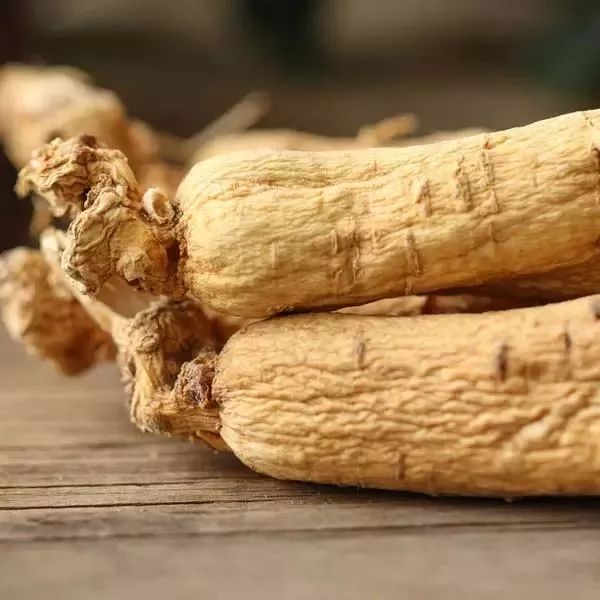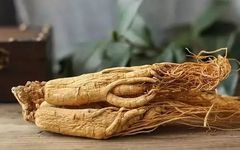 The Benefits of Drinking Ginseng Infusion
The Benefits of Drinking Ginseng Infusion

Ren Shen (Ginseng) has excellent nourishing and health-promoting effects on the body. Traditional Chinese Medicine (TCM) practitioners inform us that after consuming ginseng, the body can effectively resist aging, lower blood pressure, and promote heart function, intelligence, and immunity. Additionally, if the body experiences high or low blood pressure, diabetes, tumors, or high blood sugar, consuming ginseng can help restore health. For many women, ginseng also has remarkable beauty-enhancing effects, making them appear younger with regular consumption. Modern medicine has discovered that the selenium content in ginseng significantly exceeds that of many vegetables and fruits, effectively maintaining skin elasticity and hydration. The specific benefits of drinking ginseng infusion are as follows:
From a TCM perspective, ginseng is sweet in flavor, with a slight bitter taste upon consumption, and is warm in nature. It has excellent health benefits for the kidneys, heart, spleen, and lungs, and serves to tonify Qi, strengthen the spleen, nourish the stomach, benefit the lungs, enhance intelligence, calm the mind, and nourish the blood.
Generally, we use ginseng more for treating individuals recovering from major illnesses or those who have been ill for a long time, as well as for those who have experienced significant blood loss, as it can effectively replenish the body’s lost vital energy and spirit. Furthermore, for issues such as insufficient Qi leading to reduced appetite, fatigue, vomiting, diarrhea; lung Qi deficiency causing shortness of breath and weak cough; heart Qi deficiency leading to insomnia, vivid dreams, forgetfulness, and excessive sweating; blood deficiency resulting in pale skin and dizziness; and kidney Qi deficiency causing frequent urination and impotence, ginseng can effectively nourish and regulate the body, promoting recovery.

 Which Body Types Are Suitable for Ginseng Consumption
Which Body Types Are Suitable for Ginseng Consumption
Not everyone is suitable for ginseng consumption, so it is essential to understand one’s body type before taking it to avoid adverse effects. In daily life, the following groups are more suitable for using ginseng to nourish the body:
1. Individuals who are weak, experience shortness of breath, suffer from nervous exhaustion, or have insufficient Qi and blood, such as those with anemia, are more suited to consume ginseng to promote recovery.
2. Patients with damp-heat syndrome or those with strong vital energy should avoid drinking ginseng infusion.
Ginseng is a traditional tonic herb that has excellent nourishing effects for individuals who are weak, elderly, or recovering from serious illnesses. However, it is important to note that while ginseng is beneficial for health, it is not suitable for everyone. Today, I will discuss who should avoid ginseng consumption.

 Who Should Avoid Ginseng
Who Should Avoid Ginseng
Correctly consuming ginseng can greatly enhance health, but for certain unsuitable individuals, it may not only fail to promote health but also worsen their condition. The specific groups that should avoid ginseng include:
1. Individuals with insomnia: If you experience insomnia or poor sleep quality, it is not advisable to consume ginseng. This is because ginseng can further stimulate the central nervous system, exacerbating insomnia.
2. Patients with high blood viscosity: This refers to what TCM describes as blood stasis. Increased blood concentration can affect circulation. Ginseng can promote the growth of red blood cells, which may increase blood viscosity. Therefore, it is best to avoid ginseng in cases of blood stasis.
3. Patients with gastric diseases: Modern medical research indicates that gastric diseases are primarily caused by Helicobacter pylori. Many believe that consuming ginseng can alleviate gastric pain, but this is a misconception, as ginseng can protect the bacteria, hindering the effectiveness of medications aimed at eradicating it.

4. Healthy individuals: Nowadays, many people consume ginseng in their daily lives, believing it to be a good health supplement. However, TCM practitioners advise that this may not enhance health and could actually weaken the body. Excessive and prolonged consumption of ginseng can increase the risk of illness. For healthy individuals seeking to strengthen their bodies, a balanced diet and appropriate physical activity are the best choices.
5. Patients with cholecystitis or gallstones: Research shows that long-term ginseng consumption can significantly increase the risk of cholecystitis and gallstones, as ginseng can stimulate estrogen secretion, leading to increased bile concentration in the body, which can negatively affect health.
6. Individuals with abdominal obesity: This group may experience increased appetite after consuming ginseng, leading to weight gain, which can make the body feel heavier and slower, even causing a sensation of heaviness in the head.
7. Individuals with a ruddy complexion: This group often experiences significant emotional fluctuations, which can lead to elevated blood pressure. Consuming ginseng during such times can exacerbate hypertension, leading to insomnia and dizziness.
8. Patients with chest tightness and abdominal distension: This type of patient may find that ginseng does not alleviate their symptoms but rather worsens them, so it is not recommended for them.
9. Patients with a dark purple tongue: TCM believes that a dark purple tongue indicates stagnation of Qi and blood. Consuming ginseng in this case may worsen the stagnation, leading to symptoms like heat in the palms and soles and restlessness.
10. Patients with fever symptoms: If you have a fever, it is crucial to identify the cause before consuming ginseng. Blindly taking ginseng can worsen the condition, especially if the fever is due to a cold or inflammation.
11. Patients with thick yellow tongue coating: Normally, the tongue coating should be thin and white. A yellow coating indicates digestive issues. Consuming ginseng in this state may not promote digestion and could lead to loss of appetite or constipation.

